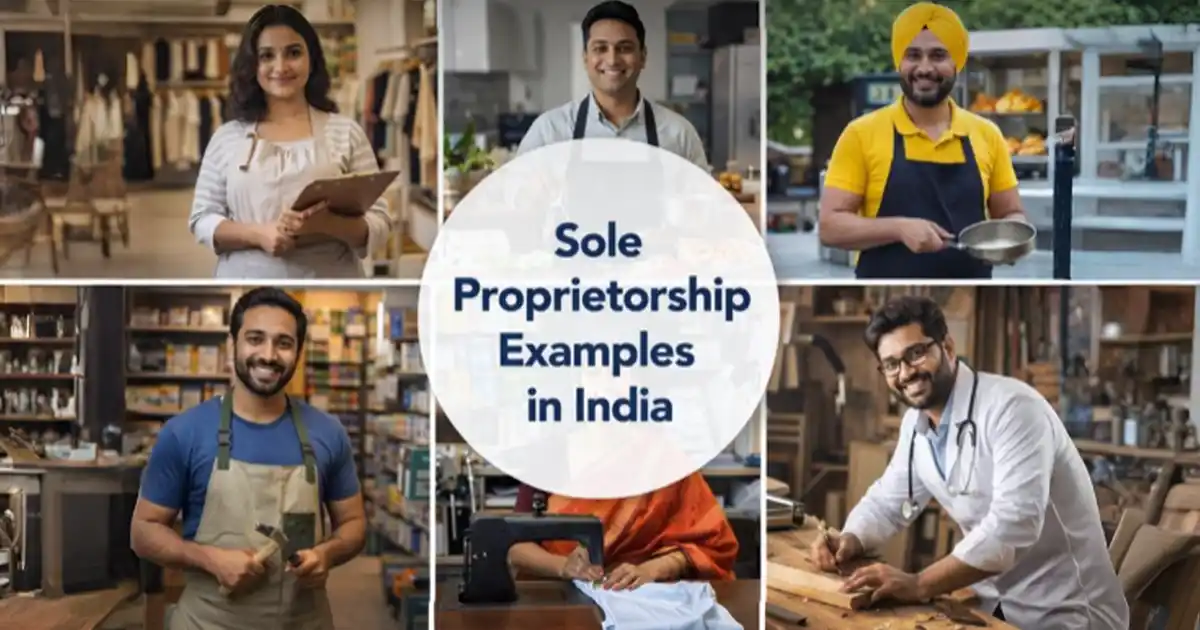The Ministry of Corporate Affairs reports that more than 63% of registered businesses in India operate as sole proprietorships, making this the most popular business structure among entrepreneurs. This shows how simple and accessible this format is for small-scale operations and startups.
Sole proprietorship registration is the process of formally establishing a business owned and operated by a single individual under Indian law. This business structure provides the simplest form of business organization, where the owner has complete control over business operations and decision-making.
The registration process involves obtaining various licenses, registrations, and compliances required to operate a business legally, including GST registration, shop and establishment license, and other industry-specific permits based on the nature of business activities.
Objectives of Sole Proprietorship Registration
The primary objective of sole proprietorship registration is to establish a legally compliant business structure that enables individual entrepreneurs to operate their ventures with proper documentation and regulatory compliance.
- Legal Business Identity: To establish a formal business identity separate from personal identity for professional dealings.
- Regulatory Compliance: Ensure compliance with applicable laws, regulations, and licensing requirements for business operations.
- Banking Relationships: Enable the opening of business bank accounts and establish proper financial infrastructure for business transactions.
- Tax Compliance: Facilitate proper tax registration, filing, and compliance with income tax and GST regulations.
- Business Credibility: Enhance professional credibility and trustworthiness in dealings with customers, suppliers, and stakeholders.
- License Eligibility: Create eligibility for obtaining various business licenses, permits, and government registrations required for operations.
- Financial Access: Establish qualification for business loans, credit facilities, and other financial services from banks and institutions.
- Contractual Capacity: Enable entering into legal contracts, agreements, and business arrangements with proper documentation.
Laws and Legal Acts Governing Sole Proprietorship Registration
Sole proprietorship firm registration in India is governed by various laws and regulations that establish the framework for individual business operations and compliance requirements.
- Income Tax Act, 1961
Governs income tax obligations for sole proprietors.
- Covers taxation on business profits and ITR filing requirements.
- Details procedures for PAN registration and tax compliance.
- Goods and Services Tax (GST) Act, 2017
Mandates GST compliance for businesses exceeding specified turnover thresholds.
- GST registration is mandatory for turnover above ₹20 lakhs (₹10 lakhs for special category states).
- Requires monthly and annual returns, along with timely tax payments.
- Shop and Establishment Acts (State-wise)
Regulates the operation of commercial establishments.
- Registration is needed for business premises under state laws.
- Regulates aspects like working hours, employee rights, and operational guidelines for the business premises.
- Labor and Employment Laws
Applies when a business employs staff or workers.
- Includes ESI, EPF, and the Payment of Wages Act.
- Ensures employee welfare and statutory benefits.
- Professional Tax Laws (State-wise)
State-specific tax applicable to professionals and trades.
- Sole proprietors may be liable for professional tax.
- Rates and exemptions vary across states.
- FSSAI Registration (for Food Businesses)
Mandatory for all food-related business operations.
- Ensures food safety and hygiene compliance.
- Applies to manufacturers, traders, and food outlets.
- Environmental Clearances
Required for businesses with environmental impact.
- Necessary for manufacturing or polluting activities.
- Involves pollution board approvals and assessments.
- Industry-Specific Regulations
Applies based on the nature of the business.
- Covers sectors like pharmaceuticals, textiles, and chemicals.
- May include licenses, safety norms, and quality standards.













